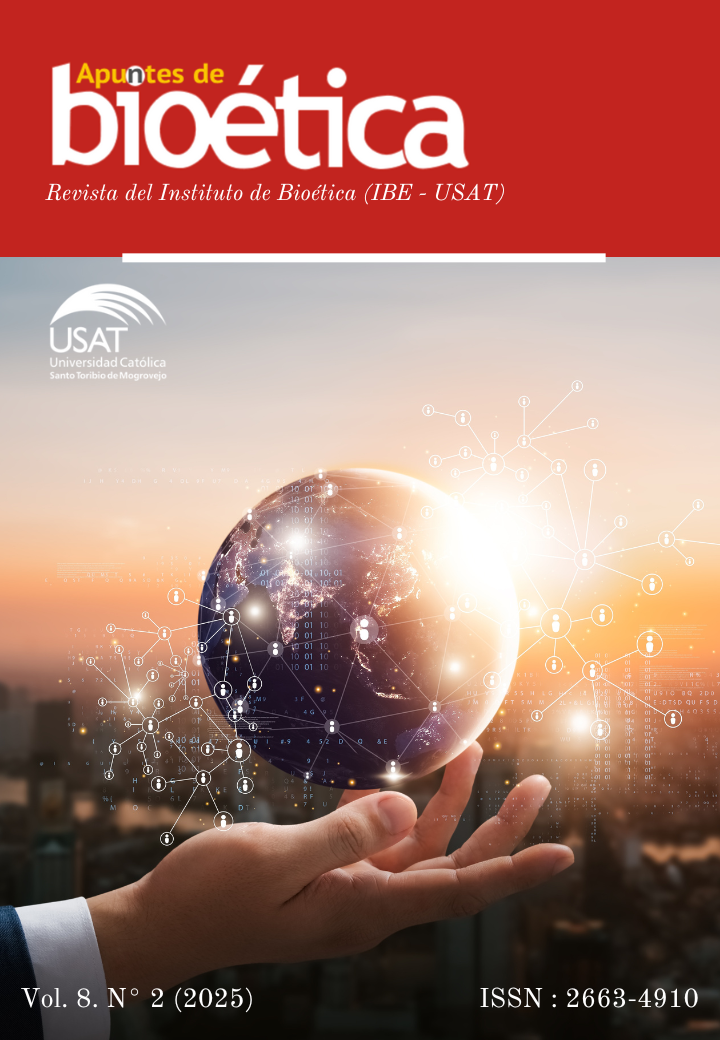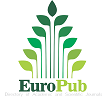Technological innovation, digital citizenship and social responsibility
a narrative review on current challenges
Abstract
This narrative review article has the objective of reflex on the social, ethical, and civic impacts of contemporary technological innovation, especially in the wake of the digital acceleration brought about by the COVID-19 pandemic. Based on empirical data, it addresses the effects of the widespread use of screens and the incorporation of artificial intelligence (AI) in work and educational contexts. It also analyzes the structural changes these devices have generated in the aforementioned areas and citizen participation, raising the question of what it means to be a citizen in digital environments and the challenges this entails. It also discusses emerging ethical risks—such as misinformation, surveillance, and digital exclusion—and proposes a proactive approach based on critical digital literacy, civic engagement, and participatory technological governance. It concludes with an invitation to collectively rethink social responsibility in the face of technological development, emphasizing an active role for citizens and promoting responsible use with a view to improving the quality of life and outcomes in work and educational spaces.
Downloads
References
Ajala, O. A., Arinze, C. A., Ofodile, O. C., Okoye, C. C. & Daraojimba, O. D. (2024). Reviewing advancements in privacy-enhancing technologies for big data analytics in an era of increased surveillance. World Journal of Advanced Engineering Technology and Sciences, 11(1), 294-300. https://doi.org/10.30574/wjaets.2024.11.1.0060
Balladares, J. A. (2023). Principios y valores para una ética digital. Oxímora. Revista Internacional de Ética y Política, (23), 1–16. https://doi.org/10.1344/oxmora.23.2023.42325
Braesemann, F., Stephany, F., Teutloff, O., Kässi, O., Graham, M. & Lehdonvirta, V. (2022). The global polarisation of remote work. PloS One, 17(10), e0274630. https://doi.org/10.1371/journal.pone.0274630
Cedeño-Salazar, P. A., Vera-Carrasco, L. M., Morales-Cobos, S. G. & Briones-Macías, J. C. (2025). Towards Inclusive Higher Education: Challenges and Opportunities of Artificial Intelligence in Addressing the Digital Divide. Pakistan Journal of Life and Social Sciences, 23(1), 5479-5489. https://doi.org/10.57239/PJLSS-2025-23.1.00428
de los Santos, D. & Fynn, I. (2024). From Safety Net to Safety Trap: Informality and Telework During the Coronavirus Pandemic in Latin America. American Behavioral Scientist, 68(8), 1032-1051. https://doi.org/10.1177/00027642231155365
Delgado, N., Campo, L., Sainz, M. & Etxabe-Urbieta, J. M. (2024). Aplicación de la Inteligencia Artificial (IA) en Educación: Los beneficios y limitaciones de la IA percibidos por el profesorado de educación primaria, educación secundaria y educación superior. Revista electrónica interuniversitaria de formación del profesorado, 27(1), 207-224. https://doi.org/10.6018/reifop.577211
Díaz, A. M., Salas, L. M., Piras, C. & Suaya, A. (2024). Gender disparities in valuing remote and hybrid work in Latin America. IDB Working Paper Series. https://doi.org/10.18235/0005683
Hernandez-Serrano, M. J., Renés-Arellano, P., Campos, R. & González-Larrea, B. (2021). Privacidad en redes sociales: análisis de los riesgos de auto-representación digital de adolescentes españoles. Revista Latina de Comunicación Social, 79, 133–154. https://doi.org/10.4185/RLCS-2021-1528
Howard, S. J., Lewis, K. L., Walter, E., Verenikina, I. & Kervin, L. K. (2024). Measuring the quality of adult–child interactions in the context of ECEC: A systematic review on the relationship with developmental and educational outcomes. Educational Psychology Review, 36(1), 6. https://doi.org/10.1007/s10648-023-09832-3
Huang, Y. (2024). The Labor Market Impact of Artificial Intelligence: Evidence from US Regions. International Monetary Fund, 199, 1018-5941. https://doi.org/10.5089/9798400288555.001
López, L. M., Sotomayor, M. A., Méndez, C. F., Cardozo, C. A., Quiroz, E., Gago-Galvagno, L. G., María, G., Ledesma, F. M., Benites, E. M., Scrigni, A. V., Lifschitz, V., Saruwatari, G., Andreau, M. I., Gubert, I. C. & Sorokin, P. (2025). Sistemas de registro civil y estadísticas vitales: desafíos éticos y propuestas para su gobernanza. Revista Panamericana de Salud Pública, 49, e47. https://doi.org/10.26633/RPSP.2025.47
Machado, H., Silva, S. & Neiva, L. (2025). Publics’ views on ethical challenges of artificial intelligence: a scoping review. AI and Ethics, 5(1), 139-167. https://doi.org/10.1007/s43681-023-00387-1
Madigan, S., Eirich, R., Pador, P., McArthur, B. A. & Neville, R. D. (2022). Assessment of changes in child and adolescent screen time during the COVID-19 pandemic: a systematic review and meta-analysis. JAMA pediatrics, 176(12), 1188-1198. https://doi.org/10.1001/jamapediatrics.2022.4116
Martínez, M. C., Sádaba, C. & Serrano-Puche, J. (2021). Meta-marco de la alfabetización digital: análisis comparado de marcos de competencias del Siglo XXI. Revista Latina de Comunicación Social, 79, 76–110. https://doi.org/10.4185/RLCS-2021-1508
Modroño, P. R. (2024). Digitalización, flexibilización y calidad del empleo. Un análisis interseccional. Cuadernos de Relaciones Laborales, 42(1), 21-32. https://dx.doi.org/10.5209/crla.89119
Moody, R. (26 de marzo de 2025). Screen Time Statistics: Average Screen Time by Country. Comparitech. https://www.comparitech.com/tv-streaming/screen-time-statistics/
Morozov, E. (2013). To Save Everything, Click Here: The Folly of Technological Solutionism. PublicAffairs.
Mossberger, K., Tolbert, C. J. & McNeal, R. S. (2008). Digital Citizenship: The Internet, Society, and Participation. MIT Press.
Nguyen, Q. P. & Vo, D. H. (2022). Artificial intelligence and unemployment: An international evidence. Structural Change and Economic Dynamics, 63, 40-55. https://doi.org/10.1016/j.strueco.2022.09.003
Organisation for Economic Co-operation and Development (2023). OECD Digital Education Outlook 2023: Towards an Effective Digital Education Ecosystem. OECD Publishing. https://doi.org/10.1787/c74f03de-en
Organización de las Naciones Unidas para la Educación, la Ciencia y la Cultura (2023). Sistema Regional de Información Educativa de los Estudiantes con Discapacidad (SIRIED): propuesta metodológica 2023. https://unesdoc.unesco.org/ark:/48223/pf0000391374
Paulo, A. (2024). Bioética y democracia en la sociedad digital. Revista de Bioética y Derecho, (60), 19–34. https://doi.org/10.1344/rbd2024.60.42990
Promma, W., Imjai, N., Usman, B. & Aujirapongpan, S. (2025). The influence of AI literacy on complex problem-solving skills through systematic thinking skills and intuition thinking skills: An empirical study in Thai gen Z accounting students. Computers and Education: Artificial Intelligence, 100382. https://doi.org/10.1016/j.caeai.2025.100382
Reluz-Barturen, F. F., Odiaga-Ríos, L., Rodas-Arroyo, M., Taboada-Montaño, L. & Ballena-De la Cruz, A. (2025). Formación integral universitaria en bioética y en tecnología informática para atención digna. Apuntes de Bioética, 8 (1), AdB1246. https://doi.org/10.35383/apuntes.v8i1.1246
Rodríguez-Martínez, A., Jiménez-Delgado, J. J. & Anta-Félez, J. L. (2025). La brecha digital. Tecnología y humanidad. Sociedad & Tecnología, 8(S1), 4–17. https://doi.org/10.51247/st.v8i2.557
Sadarangani, K. P., De Roia, G. F., Lobo, P., Chavez, R., Meyer, J., Cristi-Montero, C., Martinez-Gomez, D., Ferrari, G., Schuch, F. B., Gil-Salmerón, A., Solmi, M., Veronese, N., Alzahrani, H., Grabovac, I., Caperchione, C. M., Tully, M. A. & Smith, L. (2021). Changes in sitting time, screen exposure and physical activity during COVID-19 lockdown in South American adults: A cross-sectional study. International journal of environmental research and public health, 18(10), 5239. https://doi.org/10.3390/ijerph18105239
Salas‐Pilco, S. Z., Yang, Y. & Zhang, Z. (2022). Student engagement in online learning in Latin American higher education during the COVID‐19 pandemic: A systematic review. British Journal of Educational Technology, 53(3), 593-619. https://doi.org/10.1111/bjet.13190
Sandoval-Reyes, J., Idrovo-Carlier, S. & Duque-Oliva, E. J. (2021). Remote work, work stress, and work–life during pandemic times: A Latin America situation. International Journal of Environmental Research and Public Health, 18(13), 7069. https://doi.org/10.3390/ijerph18137069
Shahzad, M. F., Xu, S., & Zahid, H. (2025). Exploring the impact of generative AI-based technologies on learning performance through self-efficacy, fairness & ethics, creativity, and trust in higher education. Education and Information Technologies, 30(3), 3691-3716. https://doi.org/10.1007/s10639-024-12949-9
Silva, S. A. C., Lara, M. C. B., Hassan, I. M. S. M., Silva, D. J. C., Silva, A. D. C. & Rodríguez, R. R. S. (2024). Artificial Intelligence as a Co-Teacher: The Future of Personalized Teaching: Inteligencia Artificial como Co-Docente: El Futuro de la Enseñanza Personalizada. Latam: revista latinoamericana de Ciencias Sociales y Humanidades, 5(6), 91-112. https://doi.org/10.56712/latam.v5i6.3283
Stöhr, C., Ou, A. W., & Malmström, H. (2024). Perceptions and usage of AI chatbots among students in higher education across genders, academic levels and fields of study. Computers and Education: Artificial Intelligence, 7, 100259. https://doi.org/10.1016/j.caeai.2024.100259
Valenzuela, S. (2024). Cuando los algoritmos son editores: Cómo las redes sociales, la IA y la desinformación alteran el consumo de noticias. Comunicación y medios, 33(49), 186-191. http://orcid.org/0000-0001-5991-7364
Virgilio, G. P. M., Saavedra, F. & Bao, C. B. (2024). The impact of artificial intelligence on unemployment: a review. International Journal of Social Economics, 51, 12, 1680-1695. https://doi.org/10.1108/IJSE-05-2023-0338
World Health Organization (2020). Global Strategy on Digital Health 2020-2025. https://iris.who.int/server/api/core/bitstreams/1f4d4a08-b20d-4c36-9148-a59429ac3477/content
Yim, I. H. Y. & Su, J. (2025). Artificial intelligence (AI) learning tools in K-12 education: A scoping review. Journal of Computers in Education, 12(1), 93-131. https://doi.org/10.1007/s40692-023-00304-9
Zuboff, S. (2019). The age of surveillance capitalism: the fight for a human future at the new frontier of power. PublicAffairs.
Copyright (c) 2025 Lucas Gustavo Gago Galvagno, Garbiñe Saruwatari Zavala, Carlos Fernando Mendez , Paula Romina Putallaz , Patricia Sorokin (Autor/a)

This work is licensed under a Creative Commons Attribution 4.0 International License.
The authors retain copyright.
This work is under international license Creative Commons Attribution 4.0.
The articles published by the scientific journal "Notes on Bioethics" of the Universidad Catolica Santo Toribio de Mogrovejo, Chiclayo Peru, can be shared through the international public license Creative Commons Attribution CC BY 4.0
























 LIBRARY USAT
LIBRARY USAT